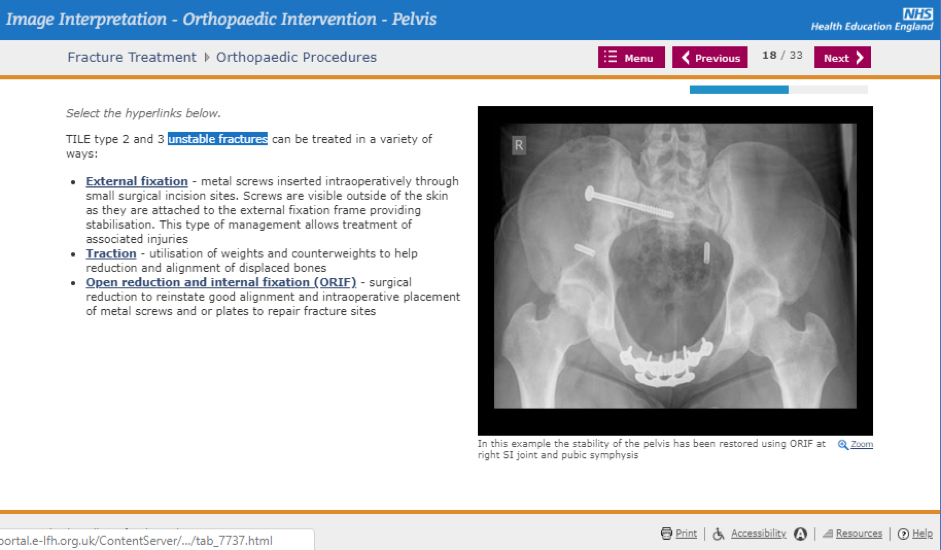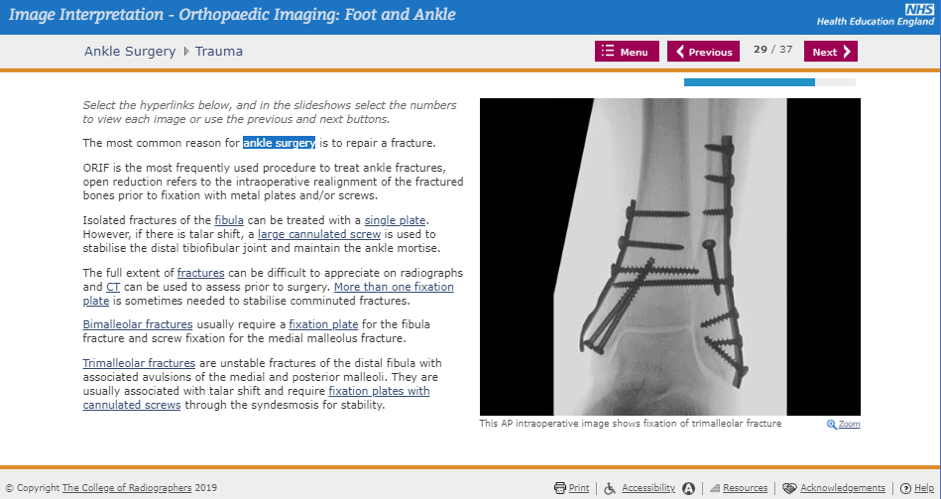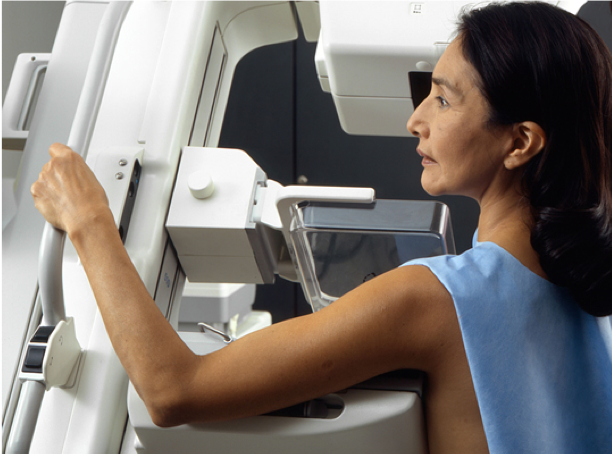Welcome to Health Education England’s (HEE) stakeholder bulletin.
In this bulletin we will provide:
- A Weekly message from HEE
- An overview of HEE education and training news
- An update from your regional office
Weekly messages from HEE:
This week’s stakeholder message was guest-edited by Lee Whitehead, Director of People and Communications, covering Wendy Reid, our Interim Chief Executive. Lee highlights the programme to make HEE the Best Place to Work and welcoming Navina Evans, HEE’s new Chief Executive, on the 1 October. Read the weekly message on the HEE website.
We are supporting all professions to rapidly grow to meet the needs of patients by:
A further step toward an alternative route into nursing
HEE’s Blended Learning Nursing Degree, an innovative national programme to train nurses of the future, has moved to the next stage.
Using a mix of technologies to study with important practice experience, this degree will provide opportunities to more people who have the right aptitude and values but need to study flexibly, pursue a career in nursing.
At a collaborative event on 25 September, with seven universities, HEE and others discussed the next steps to delivery of the programme. Universities are working towards the first students starting their courses from early 2021.
New guide to help overseas nurses go beyond basic English skills
Occupational English Test (OET), in collaboration with HEE, has launched the Living the Language: A nurse’s guide to English usage in British life and work. This new guide aims to help overseas nurses working in the UK healthcare system improve their English language skills.
The guide can be used to help overseas nurses move beyond basic English to become competent communicators at work and at home. It is packed with practical advice and focuses on the communication skills nurses need to adapt, integrate, and settle in faster.
The guide also includes practical advice and guidance on workplace and patient communication. This includes common challenges such as local accents and dialects, person-centred care, and active listening. It also includes tips on the everyday use of British English in social settings and provides help with settling into new multidisciplinary teams and professional cultures. To find out more, visit the OET Living the Language webpage.
Interim Foundation Pharmacist Programme (IFPP) update
The IFPP that launched on 24 August, is progressing well and has recently received its 1000th registrant. This programme is aimed at the 2019/20 cohort of pre-registration pharmacists whose training and registration have been disrupted by COVID-19. The programme also provides a unique opportunity to accelerate pharmacists’ early years’ education and training reform and supports the delivery of the NHS People Plan for 2020/21.
The IFPP resources are also growing, and in addition to the handbooks have which to guide pharmacists and supervisors through the programme, a brand-new guide to Learning Opportunities has also been published. This guide provides provisionally registered pharmacists (and their supervisors) with links to free to access resources that are appropriate to support learning and development throughout the IFPP.
Registration for the IFPP is still open, and the IFPP programme webpage provides guidance on eligibility and how to register. The programme team also continues to send weekly updates and to subscribe to receive these, email mailto:fpp@hee.nhs.uk, stating IFPP Updates in the subject header.
The deadline for applications to the Topol Programme for Digital Fellowships in Healthcare extended
The deadline for applications for the Topol Programme for Digital Fellowships in Healthcare has been extended until, Monday 12 October, at 5pm. The decision was made as the NHS will be busy during the second wave of COVID-19, and we want to give as many people as possible a chance to become a Topol Digital Fellow.
If you have a strong interest in making digital health happen, or if you have recently contributed to your organisation’s new digital services, consider applying for a Topol Digital Fellow post on the Digital Health Fellowship Programme webpage.
We are ensuring core HEE work to support our NHS colleagues continues:
NHS Providers Annual Conference
HEE’s new Chief Executive, from 1 October, Navina Evans, will participate in a plenary panel session at the NHS Providers Annual Conference on 7 October, between 10:40 and 11:20.
Navina will be focusing on the role of digital in the response to COVID-19 and how Trust leaders have accelerated the digital agenda from the board room. The session is aligned to NHS Providers’ Digital Boards programme, supported, and funded by both HEE and NHSX.
How the BMJ Best Practice decision-making tool can help the changing workload of clinicians
The award-winning BMJ Best Practice clinical decision-making tool is available to all NHS healthcare staff in England for free at the point of care thanks to a national subscription funded by HEE.
In recent a BMJ Best Practice blog, Prof Sheona MacLeod, HEE Interim Medical Director, and Dr Kieran Walsh, BMJ Clinical Director, discuss the importance of making up to date evidence-based medical information available to all healthcare professionals so that they can make the most informed decisions possible for the benefit of patients.
The blog also discusses how the workload of clinical staff has changed over the years, making taking time out to study and scrutinise the latest guidance was an impossibility. New technologies, which BMJ Best Practice harnesses, now enables the obtaining of new research and information to be slotted into the workflow of the modern clinician. The blog also highlights having the most up to date information using the decision-making tool can drive up the standard of care and treatment for patients and reduce the inequalities in the standard of care across different healthcare providers.
Further BMJ practice series blogs will be released on 5 and 12 October 2020.
Accessible information resources for use by front-line staff when working with people with different needs
As we see cases of COVID-19 in the community increase, we thought it may be useful to remind you of the HEE Library and Knowledge Services website. The website host information resources which front-line staff can use to help them communicate effectively with patients, clients, and their families around Coronavirus.
The website resources all meet the accessible information standard and include easy read, sign language, and Makaton formats as well as other communication guidance. To access these resources, visit the HEE Library and Knowledge Services website.
New Fellowship launched by the National School of Healthcare Science (NHSC)
In collaboration with the NHSC, Office of the Chief Scientific Officer for NHS England and Improvement, the National Institute for Health Research, and the Devices for Dignity MedTech Co-operative are launching the Healthcare Science Innovation Fellowship scheme.
The Fellowship scheme will build system capacity to increase medical device regulatory and standards expertise and innovation capabilities for the introduction of appropriate technologies to benefit cancer patients in primary or secondary care settings. With the prevalence of cancer forecast to increase, the Cancer Workforce Plan has recognised the potential for scientific and technological innovations to transform care.
To find out more about the Fellowship, visit the Healthcare Science Innovation Fellowship scheme webpage.
Dive deep into our Allied Health Professions (AHP)
Over September, we held a series of AHP webinars, each focusing on three AHPs. We looked at the current national challenges for each profession, along with the perspective of the professional bodies, and looked at profession-specific workforce data. This was a unique opportunity for a 360 look at each profession, that:
- provided up to date AHP information and data on each profession
- raised awareness, promote value, and optimise AHP skill utilisation within the system
The webinars delivered were:
- AHP Workforce webinar 1: Occupational Therapy, Podiatry, and Art Therapy
- AHP Workforce webinar 2: Physiotherapy, Operating Department Practitioners, and Orthoptists
- AHP Workforce webinar 3: Dietetics, Drama Therapy, and Paramedics
- AHP Workforce webinar 4: Speech and Language Therapy, Music, Therapy and Prosthetists, and Orthotists
- AHP Workforce webinar 5: Diagnostic Radiography, Therapeutic Radiography, and Osteopaths
To watch the webinar recordings and access the slides, visit the AHP Faculty webpage, and scroll to the bottom of the webpage, and then click the + sign under AHP Workforce Webinars.
Nursing in Social Care
We are delighted and excited to release our new Nursing is Social Care video. The seven-minute video was filmed at Wren Hall and Landermeads nursing homes in Nottingham.
The film showcases the role of nursing in social care and we hope it will attract nurses and nursing associates who want to work in this rewarding sector. It also conveys the passion for what we do, the varied nature of the career, and how social care nursing is about supporting people in the long term, building relationships that are not always possible in the acute sector.
Participate in user research – HEE National Website Platform
HEE is developing a new National Website Platform digital service that aims to replace the multiple website management systems across HEE with a single platform for all HEE websites, including national, regional, local, and programme – similar to gov.uk. When the service becomes available, it will offer a better user experience and improved accessibility.
HEE is keen to provide a digital service that is fit for purpose and meets user and stakeholder needs. If you are a user of any HEE website, please get involved in user research and testing activities and subscribe to the National Website Platform Stakeholder Involvement Databank.
For further information and queries, email parah.orakpo@hee.nhs.uk.
We are making sure all professions have the training they need to make a difference:
HEE elearning for healthcare (elfh) updates
The elfh team, alongside key partners, have recently added and updated the following elearning programmes:
- COVID-19 recovery and rehabilitation resource
- New Midwifery Continuity of Carer resource
- elearning for Community Carers – Hydration in Older People
- New Personal Health Budgets elearning programme – a resource to support personalised care for those with complex needs
- New elearning on tackling homelessness – a resource to support the health and care workforce to prevent and relieve homelessness.
The Learning Hub – what do resources look like on the platform?
The Learning Hub is a digital platform that provides easy access to a wide range of resources that are pertinent to education and training in health and care. Various resource types can be contributed to the Learning Hub, but what do they look like when viewed by a user on the platform?
Organisations and users can contribute and share resources for those in health and care to access. Users are also able to rate the resources they view which helps other users to see, at a glance, how a resource has been rated by others and can inform whether they choose to access it.
Almost 650 resources have already been contributed to the Learning Hub including, elearning, video, audio, images, weblinks, documents, and articles on a range of subjects. But when you contribute a resource, how does it appear to other users? Recently contributed content includes a series of tracheostomy videos to support health and care professionals treating COVID-19 positive patients, to see how these resources appear, visit the Learning Hub contribution resource webpage.
Contribute to the Learning Hub
If you or your organisation have resources to share and contribute to the Learning Hub, sign into the Learning Hub, and select the Contribute a resource webpage.
Please note, you can sign into the Learning Hub using your elfh Hub, NHS OpenAthens username and password, or by creating an account on the Learning Hub and using those details.
If you have any questions or want to find out more about contributing resources to the Learning Hub, email enquiries@learninghub.nhs.uk. For more information about the Learning Hub, follow @HEE_TEL on Twitter, and visit the Learning Hub blog.
HSJ win for ESCAPE-pain
Earlier this year HEE elfh worked with the Health Innovation Network and Academic Health Science Network to develop an ESCAPE-pain elearning resource to support the ESCAPE-pain initiative. We are delighted to share the news that the ESCAPE-pain initiative won the MSK initiative of the year in the HSJ Value Awards.
ESCAPE-pain is an evidence-based and cost-effective group rehabilitation programme for people with chronic joint pain. The elearning resources are aimed at helping interested providers determine how ESCAPE-pain may fit within their organisation and to begin the process towards implementation and professionals who plan to deliver the programme and become ESCAPE-pain facilitators.
To find out more, visit the elfh ESCAPE-pain webpage.
The return of face-to-face simulation training
HEE’s Technology Enhanced Learning (TEL) team recently announced the release of the COVID-19 toolkit for safe simulation in health and care. The second part of this guidance, National guidance for safe delivery of Simulation-Based Education, has now been published. This new document develops some of the ideas introduced in the toolkit.
The next phase of the return of face to face simulation work, #SimRestart, is now underway. The joint venture, between HEE’s TEL team and the Association of Simulated Practice in Healthcare, aims to create an open library of resources to help local education providers offer safe and effective face-to-face or remote access simulation-based learning.
We would like to hear from anyone who is building experience and expertise by using techniques, such as remote access live observation and feedback, video-assisted simulation activities, or other forms of immersive technology to enhance simulation-based learning. To get in touch, email tel@hee.nhs.uk using #SimRestart in the subject line.
Further information
By following @NHSHealthEdEng on Twitter you can keep up to date with new information and resources as they are published. Most importantly, there are notifications of HEE webinars being broadcast during the week.
Right now, making sure we are communicating properly is incredibly important. If there is any information you think is missing on HEE’s webpages, please let us know by submitting your question to the HEE Q&A helpdesk.




